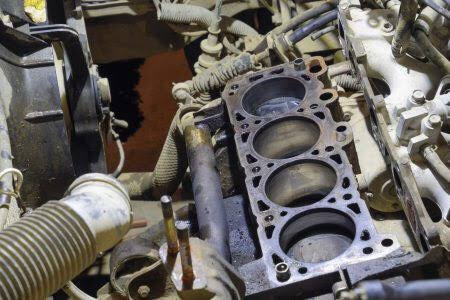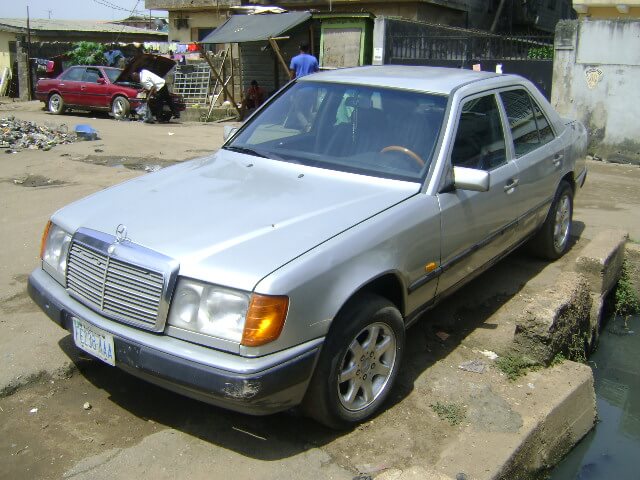A blown head gasket is a bad news. Very bad news. If you happen to think that yours is about to park up, it will require immediate attention. A head gasket can fail in a number of ways, and all are bad news for the engine. If there is a sweet-smelling white cloud following behind you at all times, you may have a bad head gasket.
Table of Contents
Typically, the head gaskets fail when the head and the engine expand at different rates, and the gasket can’t seal the newly expanded gap. This issue is particularly made worse in cars that make use of an iron cylinder block and an aluminium head.

Moreover, some engines are just designed with poor clamping force from the head bolts or have heads prone to warping, and a reputation for failure.
Once a head gasket has failed it can cause all manner of problems, including the following
1. Oil Contamination
One of the most famous signs of head gasket failure is the milky sludge on the underside of the oil filler cap or the dipstick. This is caused by coolant getting into the oil, and vice versa.
Although not conclusive proof of head gasket failure this is generally a good indicator and is a sure sign your engine needs to be put part by a professional to find the source of contamination.
With antifreeze contaminating the oil, any driving will quickly ruin the engine’s bearings. Repair requires at least an engine oil flush as well as a replacement oil filter, and oftentimes complete disassembly of the bottom end of the engine to ensure the bearings aren’t damaged and clear out all contaminated oil.
2. White Smoke
A faulty head gasket most often results in billowing clouds of sweet-smelling white smoke coming from the exhaust. This smoke is caused by antifreeze leaking past the gasket and into the cylinders, where it is turned to steam as part of the combustion process.
Either of these types of gasket failure will also allow combustion pressure into the cooling system or oil breather system. If a radiator hose suddenly blows off its water outlet, or the dipstick won’t stay put, this could be the reason.
3. Overheating
A head gasket failure may be caused by an engine overheating one too many times (as a result of a clogged radiator, coolant leak, faulty fan, etc.), but the blown head gasket can also cause the engine to overheat.
Hot exhaust gases can leak into the cooling system, or coolant can leak into the cylinders and be burned off as steam, either way, the end result is an overheating engine.
If you drive the car while overheating, it can also result in the alloy cylinder head warping, or steam damaging the catalytic converter, adding significantly to the cost of repair.
4. Loss of Power
If the head gasket fails in such a way that it allows the compressed air/fuel to escape, the compression of that cylinder is reduced. This loss of compression results in a rough running engine and a notable reduction in engine power. This sort of failure typically is accompanied by a sound like an exhaust leak.
5. External leaks
If a head gasket has failed between the water or oil passage and the outside of the engine, the result can be a simple coolant or oil leak. An external leak may not manifest itself as an immediate problem, but if the coolant level is allowed to drop too far, it can lead to serious engine issues.
Have 1 million naira and above to Buy or Sell Cars In Nigeria? Check carlots.ng
All rights reserved. Reproduction, publication, broadcasting, rewriting, or redistribution of this material and other digital content on carmart.ng is strictly prohibited without prior express written permission from Carmart Nigeria - Contact: [email protected]







